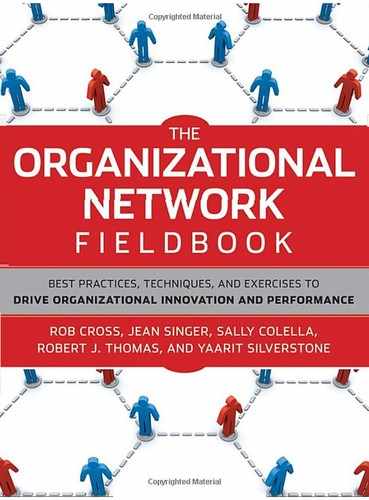15.5. Lessons for Other Organizations
The process employed by the MRF can provide significant upside for nonprofit and for-profit organizations alike. Potential benefits include optimizing the return on R&D and innovation investments by leveraging potentially lower-cost external resources, refocusing resources, accelerating the discovery process, and achieving more and better innovation.
These guidelines can help organizations attempting a similar approach increase their chances of achieving the desired results:
Get buy-in and involvement from scientific experts. For scientists, it is a point of pride to know who the key players are in their area of expertise, and often a large share of the findings from the workshop process confirm their existing knowledge. This confirmation makes them more receptive to network insights in areas less familiar to them.
Leverage external perspectives to help envisage and navigate the network. Whether this takes the form of bringing in an outside advisor as the MRF did, or involving experts from outside the organization in problem definition and scoping, there is demonstrable value in accessing external topic and process knowledge.
Avoid boiling the ocean. Careful technology scoping and definition of the underlying dataset are the first steps to avoid becoming awash in a sea of complex data.
Conduct pre-work, and script the Discovery Workshop in advance. The Discovery Workshop process is not just a random walk through networks. The team that gathers and analyzes the data and generates the networks as part of the preparation phase has a critical role in hypothesis generation, navigation, and group facilitation. It is essential for the team to provide an overview and to have some initial pathways of inquiry clearly defined to inspire the team's creativity. As participants become familiar with the space and the tools, they can begin to steer the investigation, particularly when they come across companies, institutions, individuals, or science that spark their interest or are unfamiliar.
Be rigorous about defining follow-up actions. In the course of the workshop, it is essential to establish a clear follow-up plan. Ideally, those responsible for follow-up are engaged in the process from the beginning and will be taking part in the workshop.
